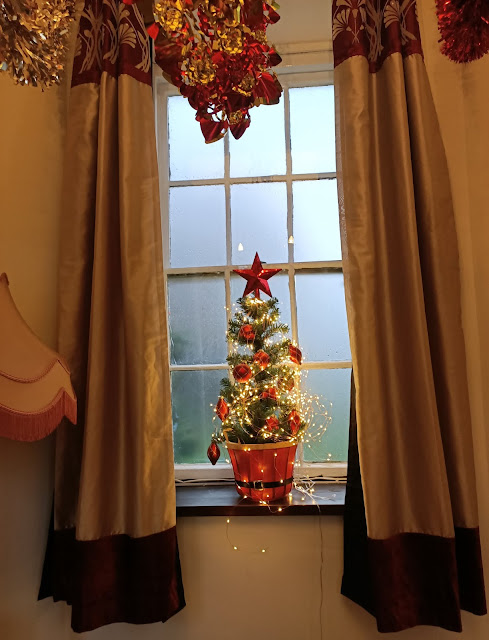The Story of the Roast Hare
Bit of a late post today. We’ve had a couple of wonderful sunny days in North Staffordshire/Cheshire East – more like summer than spring. And yet snow is forecast for Easter Monday! I think some of the plants in the gardens at Betley Court will be taken by surprise.
The full sun suits our daffodils very well, and this year’s display is wonderful. Bald patches, where we had machinery moving through the gardens during the restoration of the dam in 2019 are healing nicely. All the repair work Shane and Melvyn are doing is gently knitting the scars back together. Hopefully, they will be unnoticeable by the time we welcome people to the gardens.
We have a start date for the initial work on our new roof! The relevant permissions have been sought and our specialist contractor MidlandConservation Limited will be on site from 19th April 2021. They have a wealth of experience on restoring listed buildings, having worked on ecclesiastical buildings like Lichfield Cathedral, historic ones like Priton Castle (Croome Park) and conservation areas such as Bournville. They come to Betley Court with an excellent pedigree, so it will be exciting to see the restoration unfold.
Similarly, we have permission to cut back some
of the trees facing the road, to create access onto the lawn. One of the contractor’s
first jobs will be the creation of a site yard on part of the lawns. It will be a bit of a shock to see this area
transformed into a building yard, but it is ‘the necessary’ if Betley Court is
going to be rebuilt.
I’ve been delving into the British Newspaper Archive again,
and discovered a revealing article in The Chronicle dating from 4th
March 1911, about a legal dispute, not at Betley Court, but at Betley Hall. A
recently hired cook, Eliza Johnston, of Birmingham, brought a case against her
former employer, Mrs Margaret MacDonald, wife of Colonel MacDonald of Betley
Hall. All over the preparation of a Sunday lunch.
 |
| A postcard of Betley Hall, around 1920 |
Johnston was an experienced cook, who had worked for the households of a bishop and a high sheriff, amongst others. She was hired by Mrs MacDonald and arrived one Saturday in time to prepare the evening meal. Although, Mrs MacDonald had no complaints about this meal, it seems that Johnston had numerous complaints about Betley Hall. Quite quickly, she formed the opinion that the Hall was filthy, and badly equipped. In court, she testified that there was no soap to be found in the place, the kitchen was inadequately furnished with cooking utensils, and when she asked another servant for a broom to start cleaning, there was none to be found. She remarked that other servants had burnt their initials into the walls, and graffitied “This is B_____Hall” in a corridor, the dash standing in for a rude word! Clearly all was not well at Betley Hall, and Johnston tended her resignation immediately, and decided to work out her weeks’ notice.
 |
| From the Chronicle, 4th March 1911. From the British Newspaper Archive |
On the Sunday, Johnston was presented with a hare to prepare
for Sunday lunch. It did not go well. The cooked hare arrived at the table, and
was described by Mrs MacDonald’s representative as ‘a gruesome sight’. It
probably didn’t help that Mrs MacDonald had invited a priest to join her for
lunch, so her embarrassment had a witness. To be fair, Johnston had been forced
to cook the hare over an open fire, rather than in an oven, using a dripping
tin with a hole in it. She’s been unable to truss the hare, as there was no apparatus
for this in the kitchen. The poor hare arrived at the table with a burnt head,
and an uncooked rear end. Presumably, there was a portion in the middle that
was cooked correctly, but by the sounds of things, the dish looked so appalling,
neither parties were tempted to try it. The disastrous lunch brought the
problems between employer and employee to a head. On Monday, after a
confrontation in the larder, where Johnston laughed at Mrs MacDonald, Mrs MacDonald
wanted Johnston gone.
In court, the crux of the complaint against Mrs MacDonald
was that she owed Johnston two day’s pay and travel expenses. Mrs MacDonald’s
defence was that Johnston was insolent and had deliberately ruined Sunday lunch,
therefore had been dismissed, rather than resigned. In his summing up, Judge
Brown KC, remarked that it was well-known that Betley Hall had staffing issues.
In fact, it came to light that four servants had run away in recent times, and
a constable had been called to the house (although Mrs MacDonald made clear she
was unaware of these incidents). Evidence given in court pointed to meagre resources
at Betley Hall, for example, matches were rationed, and servants had one tallow
candle per week. And the issue of an ill-equipped kitchen in a country house
was also examined. However, the Judge found in favour of the defendant, the Chronicle
reporter stating,
“He [the Judge] did not think
that because the plaintiff had had several big places, that she was justified
in getting on stilts, and riding high.”
In other words, just because Johnston had worked in several
high-status houses, she should get off her high horse. Presumably she returned
to Birmingham, and I hope found happier times in her next post, and steered
clear of roast hare dinners!
The newspaper article offers a fascinating window onto master/mistress
and servant relationships. I felt some sympathy for Eliza Johnston, taking on
her employer over a couple of day’s wages. By the sounds of things, Mrs
MacDonald was simultaneously grand and 'down on her upper', judging by her ill-equipped
kitchen, so possibly, she was in no better position than her former employee.
All best wishes
Ladybird Su







Comments
Post a Comment